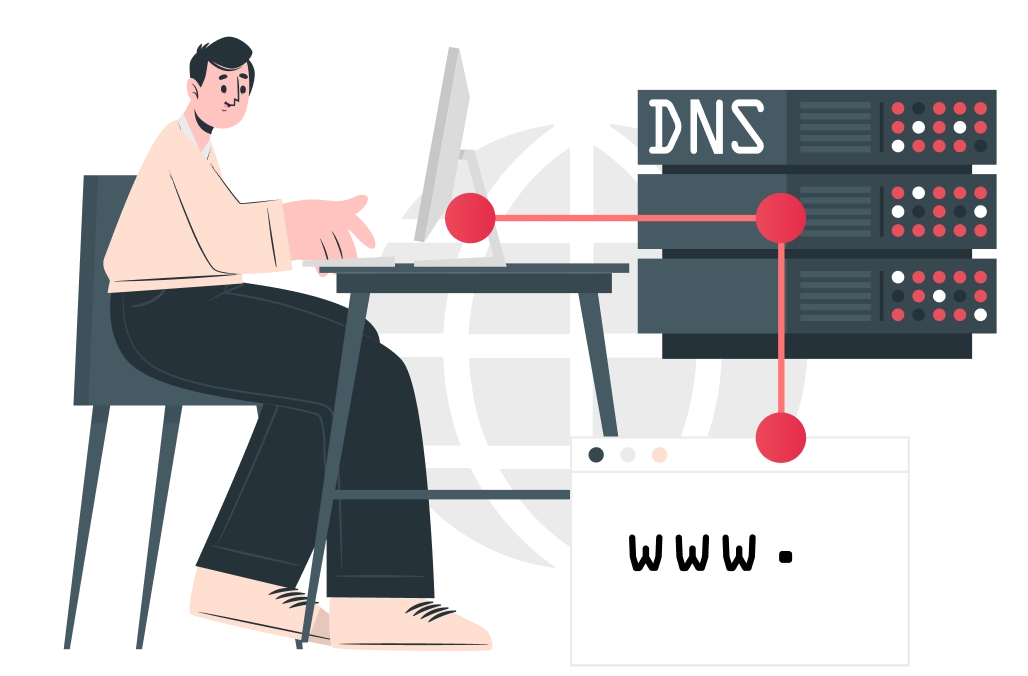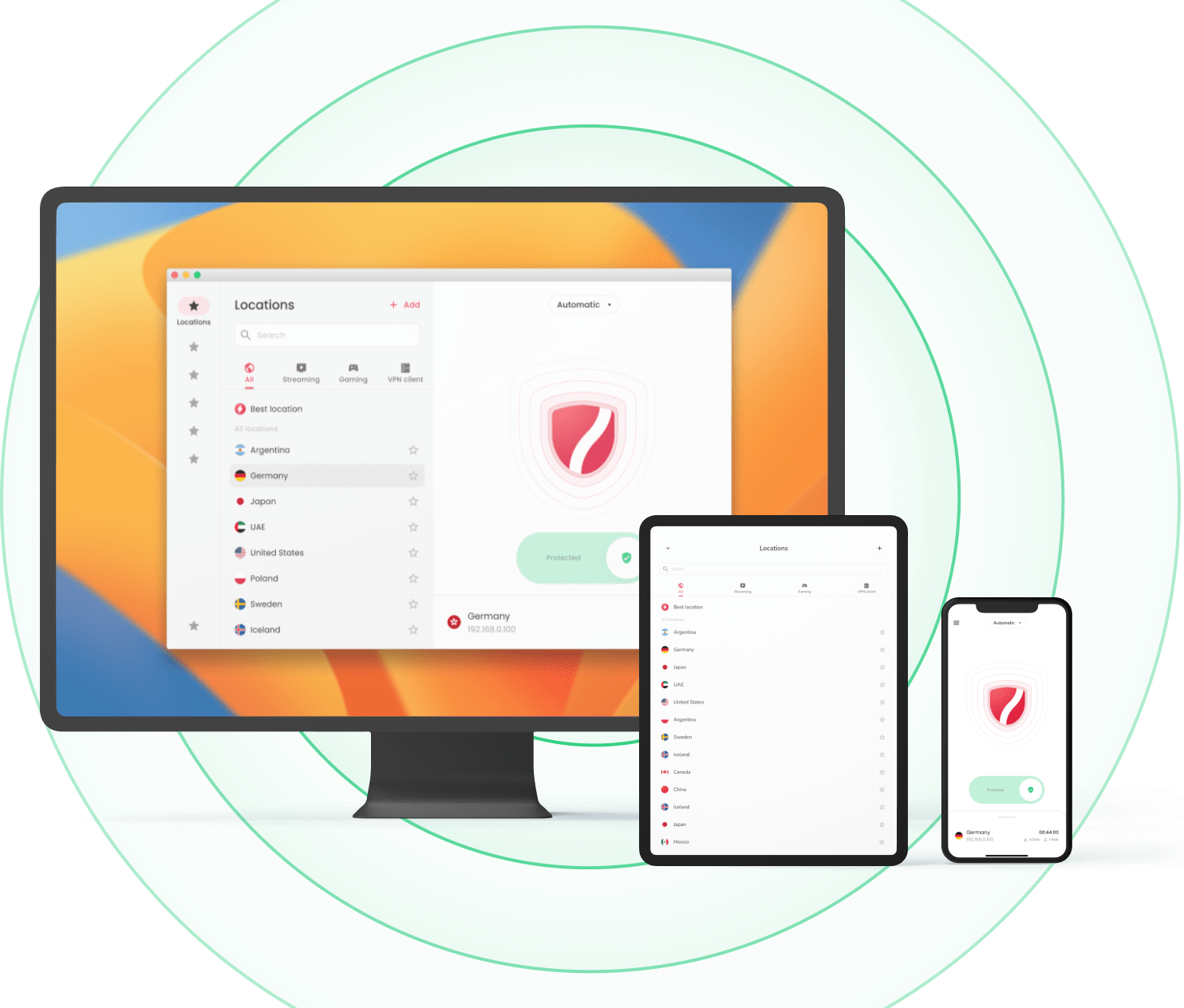What is DNS?

A domain name system (DNS) translates website names (e.g., www.7vpn.com) into IP addresses, helping your devices access web resources. The process is normally handled by your Internet Service Provider (ISP), and that’s how your whereabouts and online activity can be tracked. A private DNS solution will reroute your requests through an intermediate server, giving you an alternative IP address. This allows you to unlock geo-restricted content, such as online games and TV series — even if your device does not support VPNs.
Why do you need a VPN with a private DNS?
A DNS does not encrypt your traffic by default
Don’t choose between DNS vs. VPN — you can use both! DNS solutions unlock access to region-restricted content for smart TVs and gaming consoles, while VPNs encrypt your traffic and help bypass geoblocking on other devices.
A VPN with a DNS shields you from DNS leaks and hijacking
A properly configured VPN service with a DNS will eliminate situations when your IP address and traffic get exposed to your ISP or third parties, either inadvertently or by malicious intent, protecting you from cyberattacks.
DNS-based VPNs boast advanced geo-spoofing capabilities
Don’t choose between DNS vs. VPN — you can use both! DNS solutions unlock access to region-restricted content for smart TVs and gaming consoles, while VPNs encrypt your traffic and help bypass geoblocking on other devices.
VPNs with a private DNS guarantee faster DNS resolution
Considering the complex, multi-server nature of DNS solutions, the process of converting a domain name into a machine-readable IP address can be lengthy. A DNS-powered VPN can speed up domain lookups, improving your browsing experience.
A VPN with a DNS server boosts your cybersecurity
Combining a VPN with a private DNS ensures a robust defense against various threats, such as surveillance, tracking, and phishing attempts through traffic encryption, IP masking, and DNS query protection.
DNS-powered VPNs are easy to install and operate
Custom DNS setup can be challenging, especially for non-tech users. A VPN with a private DNS, on the other hand, comes with preconfigured security and performance settings and can be installed in a few clicks.

Why are DNS [WebRTC] leaks dangerous?
A DNS leak is a security vulnerability that involves accidental or intentional exposure of a user’s browsing data and IP address. DNS leaks occur when queries are incorrectly routed through proxy servers. 7VPN boasts a reliable, properly configured DNS infrastructure that ensures fast domain lookups, complete anonymity, and end-to-end data encryption.

Stay in the Cybersecurity Loop!
To learn more about VPN services, stay safe on the web, and keep your finger on the pulse of cybersecurity advances, subscribe to the 7VPN blog!
Frequently asked questions
What is a VPN and a DNS?
A virtual private network is a connectivity technology that replaces your factual IP address with an alternative one and encrypts the traffic your device exchanges with web services, thus creating a 100% secure, private network over a public network. Some VPNs may also feature ad-blocking software.
A domain name system translates human-readable website names into machine-readable IP addresses, enabling Internet-connected devices to communicate with each other. Just like VPNs, private DNS solutions conceal your IP address, which unlocks access to geo-restricted content. However, DNSs lack data encryption capabilities.
Do I need a DNS if I have a VPN?
Combining a VPN with a private DNS is one of cybersecurity best practices. While VPNs scramble your data and mask your IP by rerouting traffic through remote servers, a private DNS speeds up the website domain lookup process and validates that your requests are properly routed through the VPN servers.
Which VPN has a private DNS?
7VPN is a reliable virtual private network solution for iOS, macOS, Android, Windows, and Linux devices. Our VPN product boasts a high-performance DNS that takes your browsing experience to the next level. Check out our service pages to learn more about 7VPN — and message us if you have any questions!

